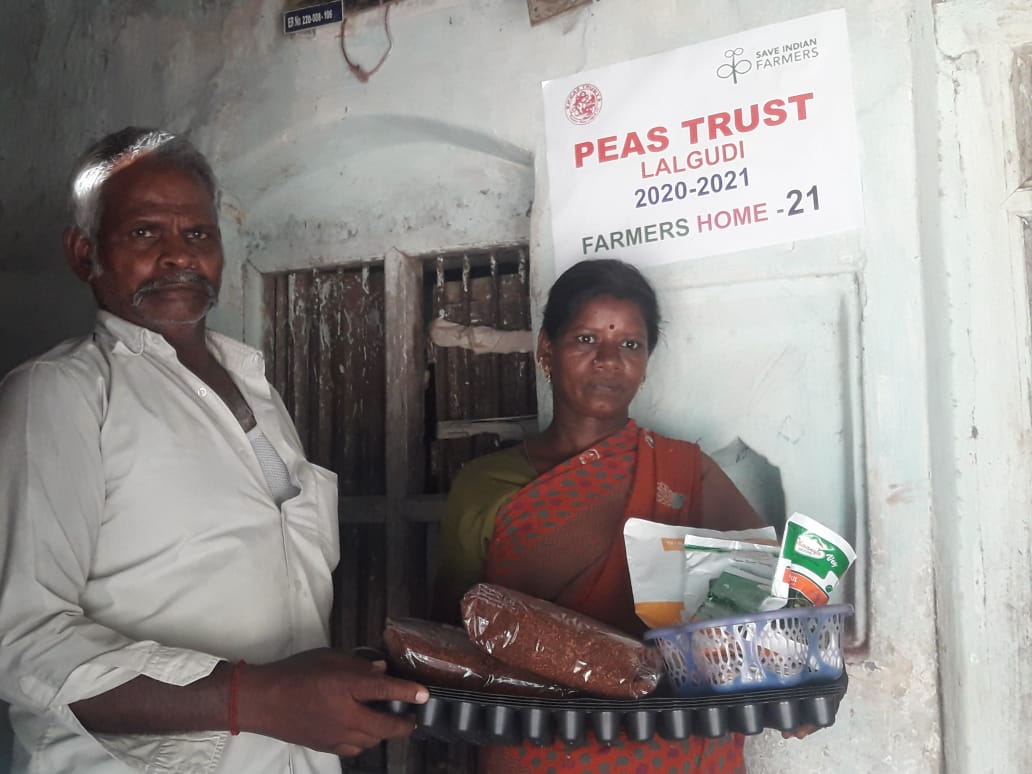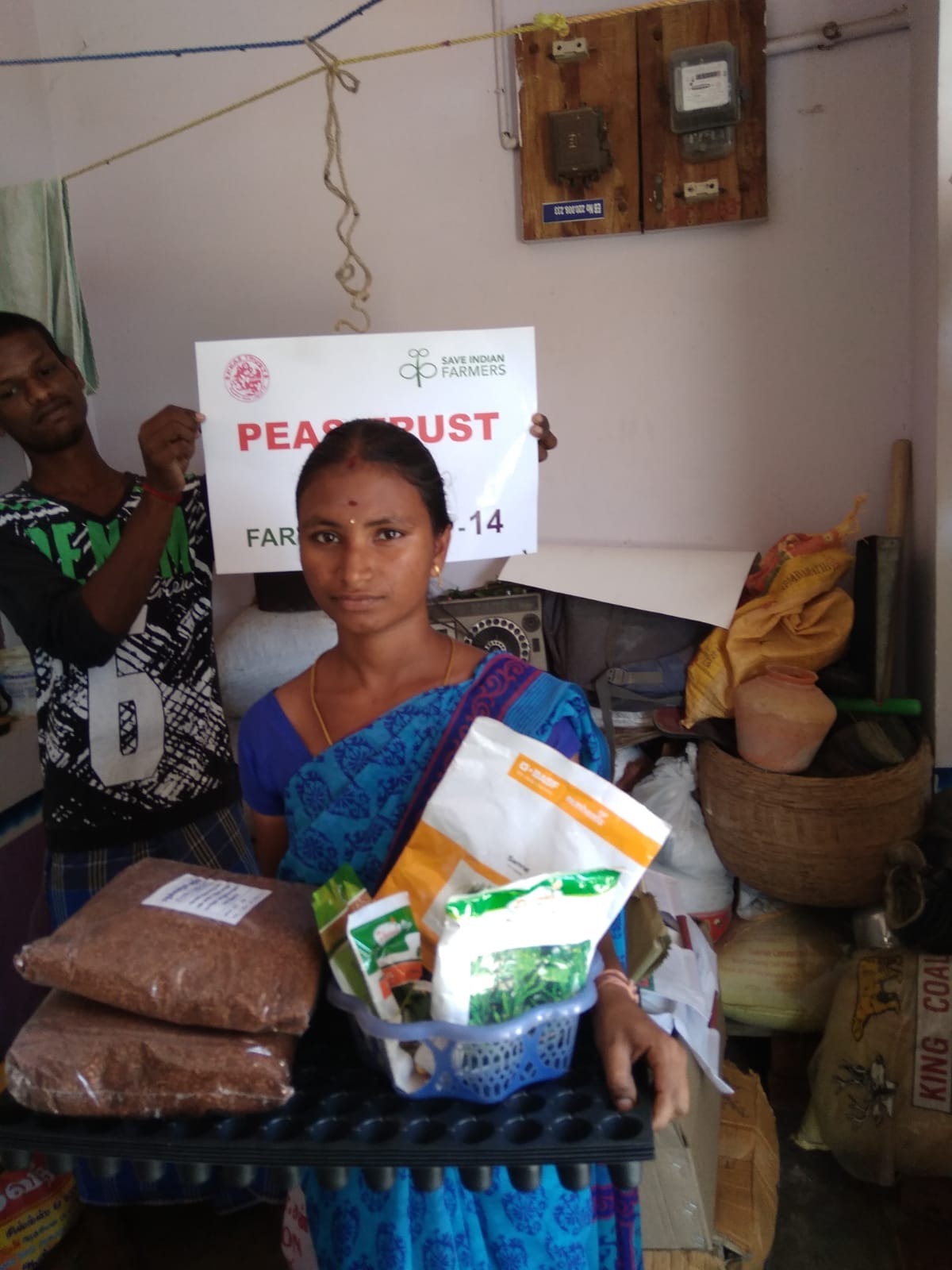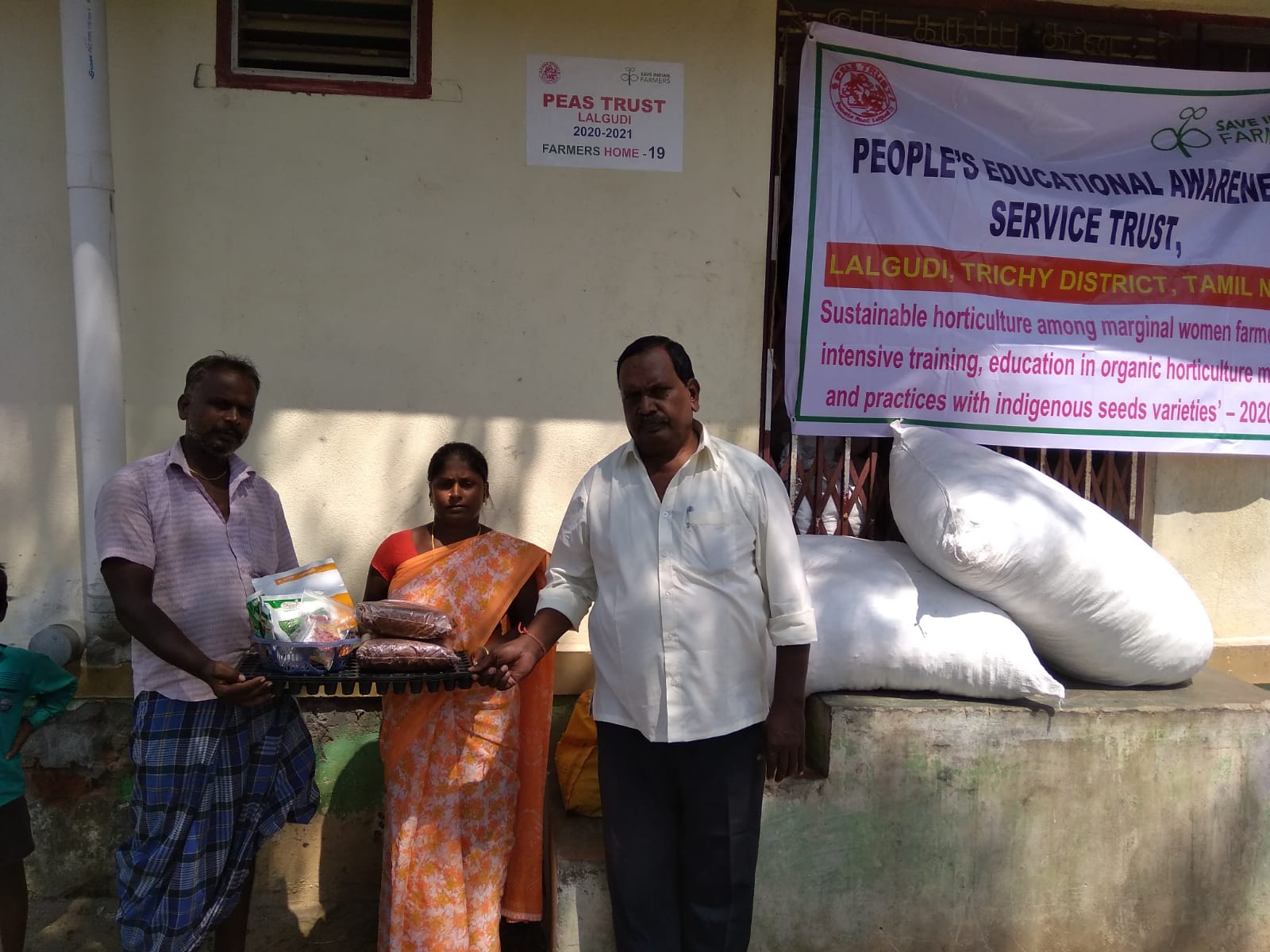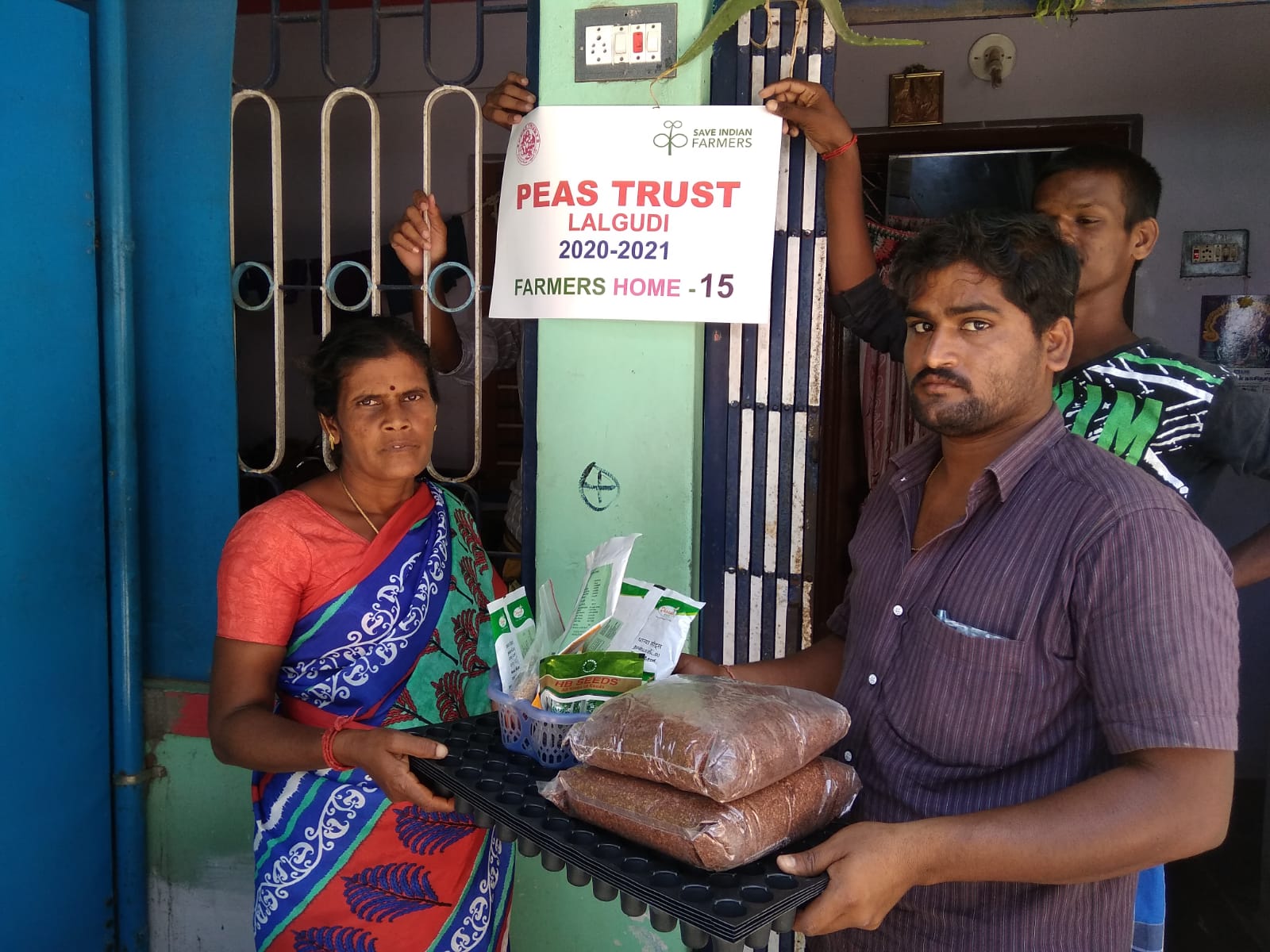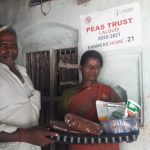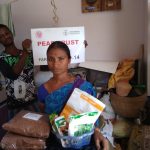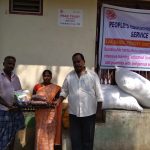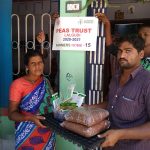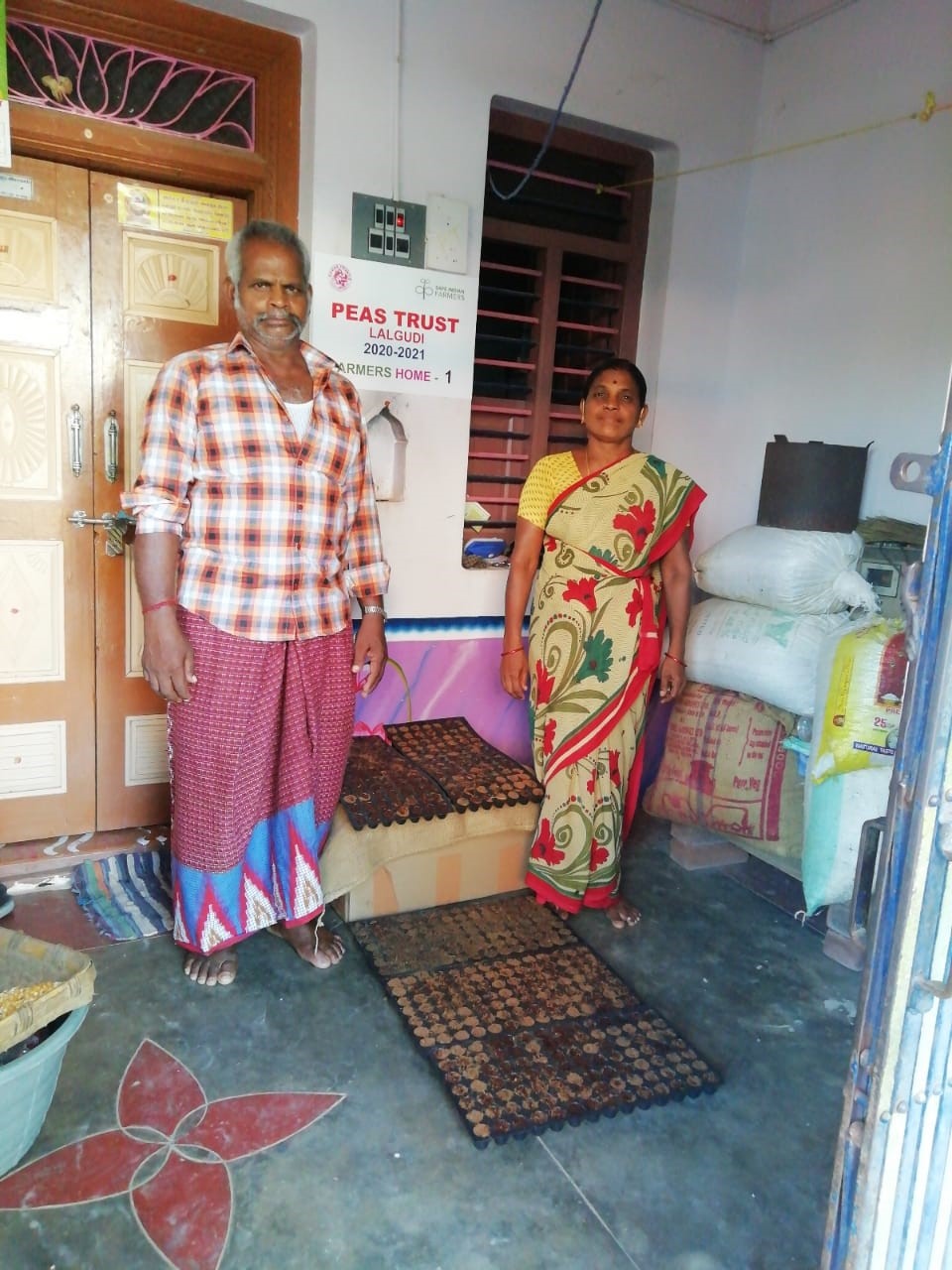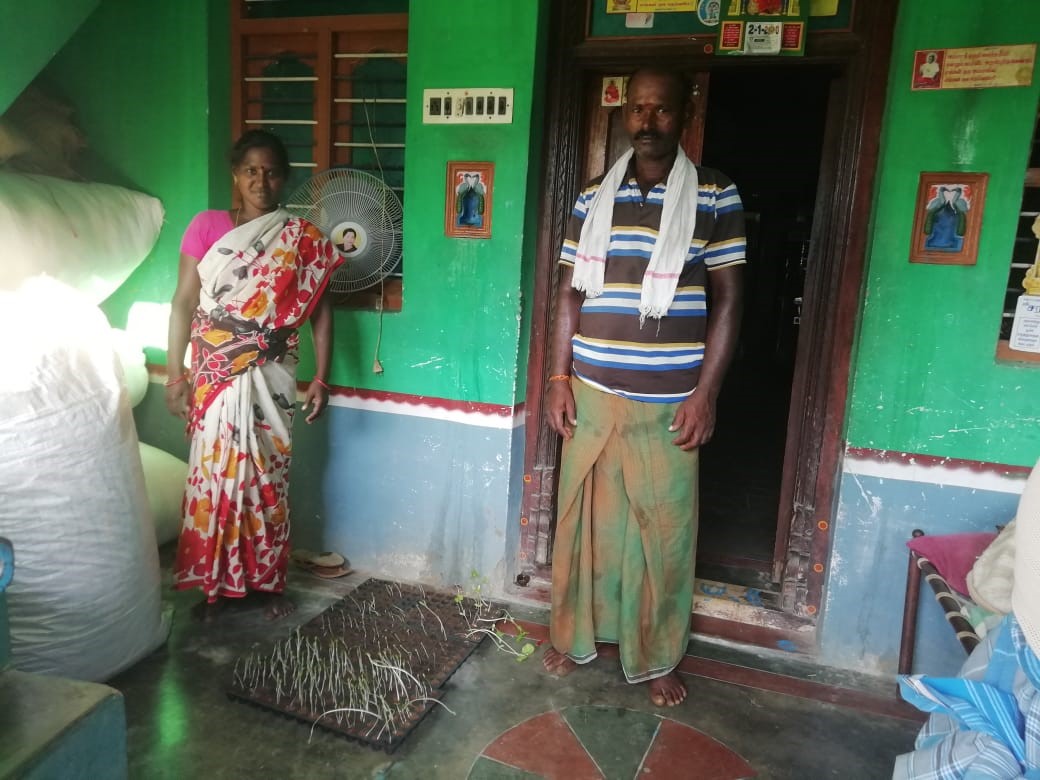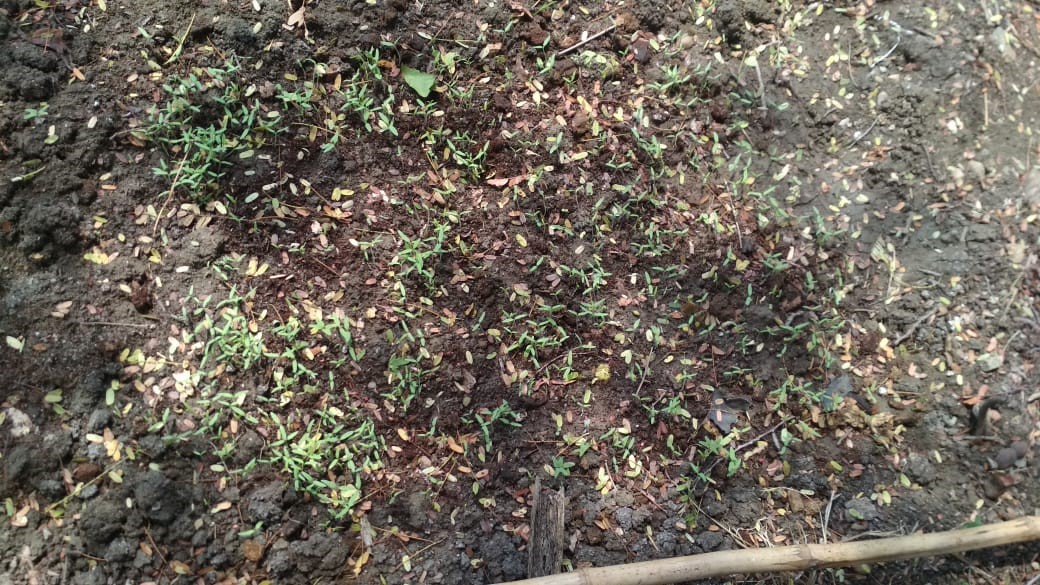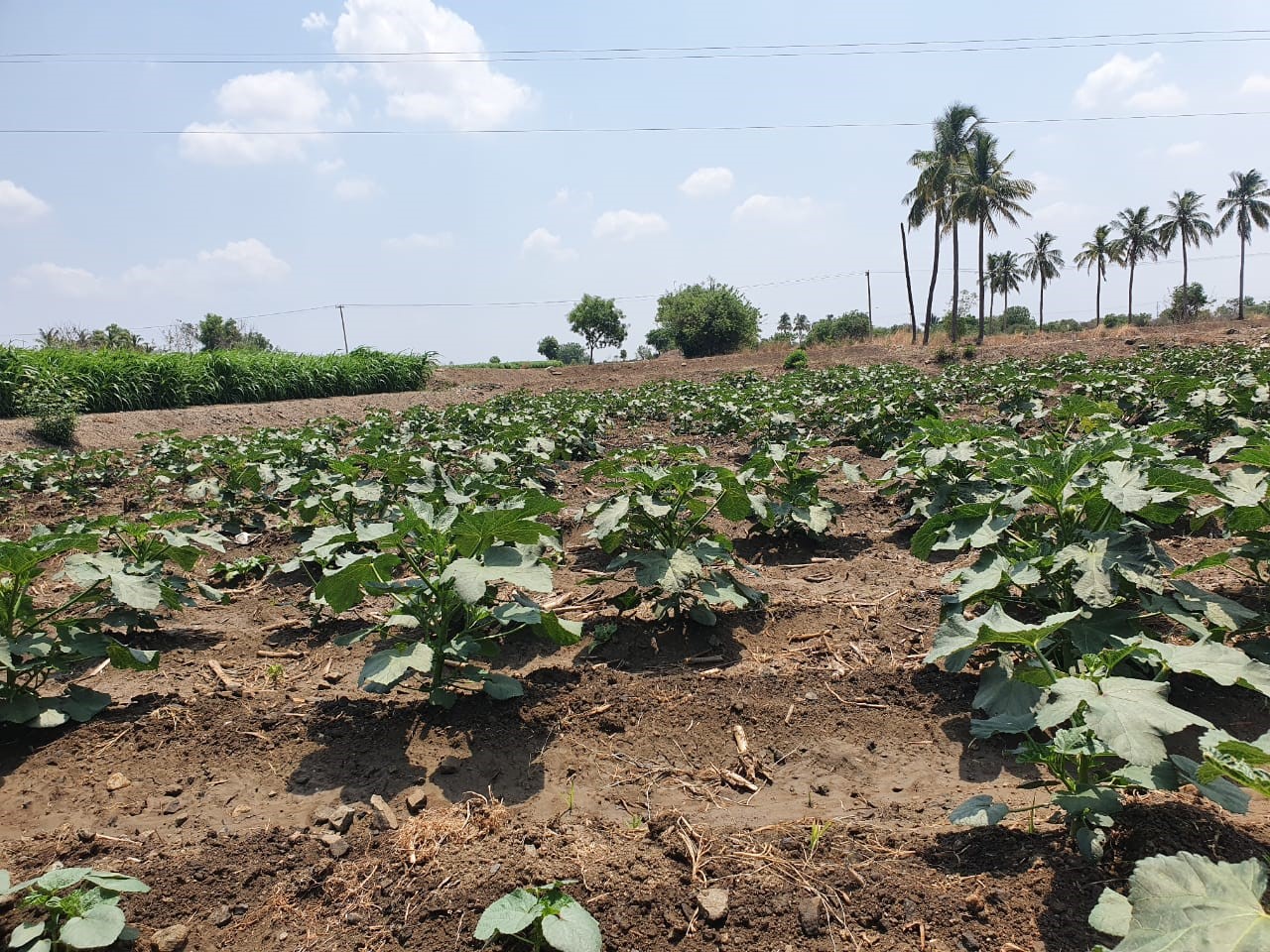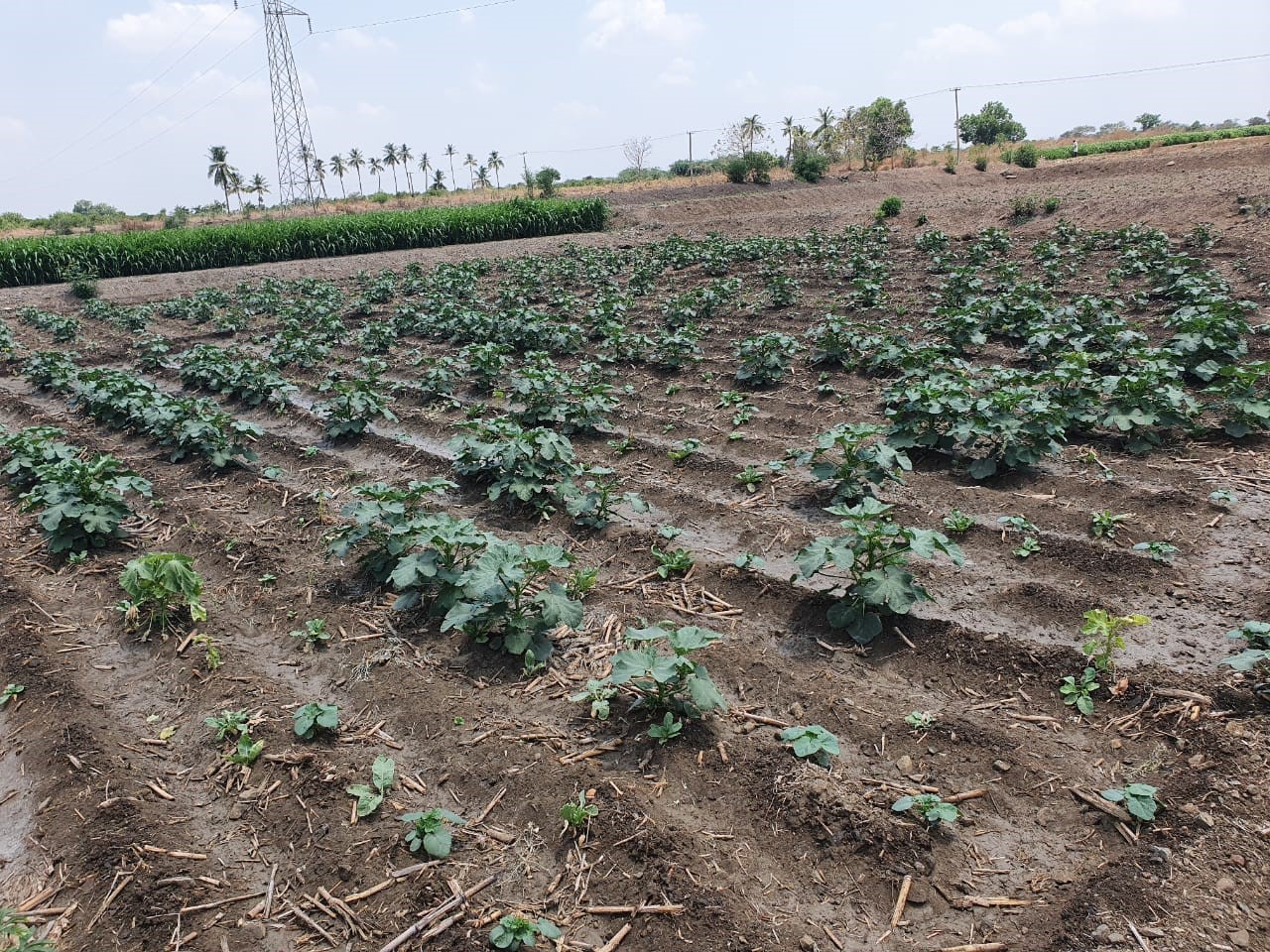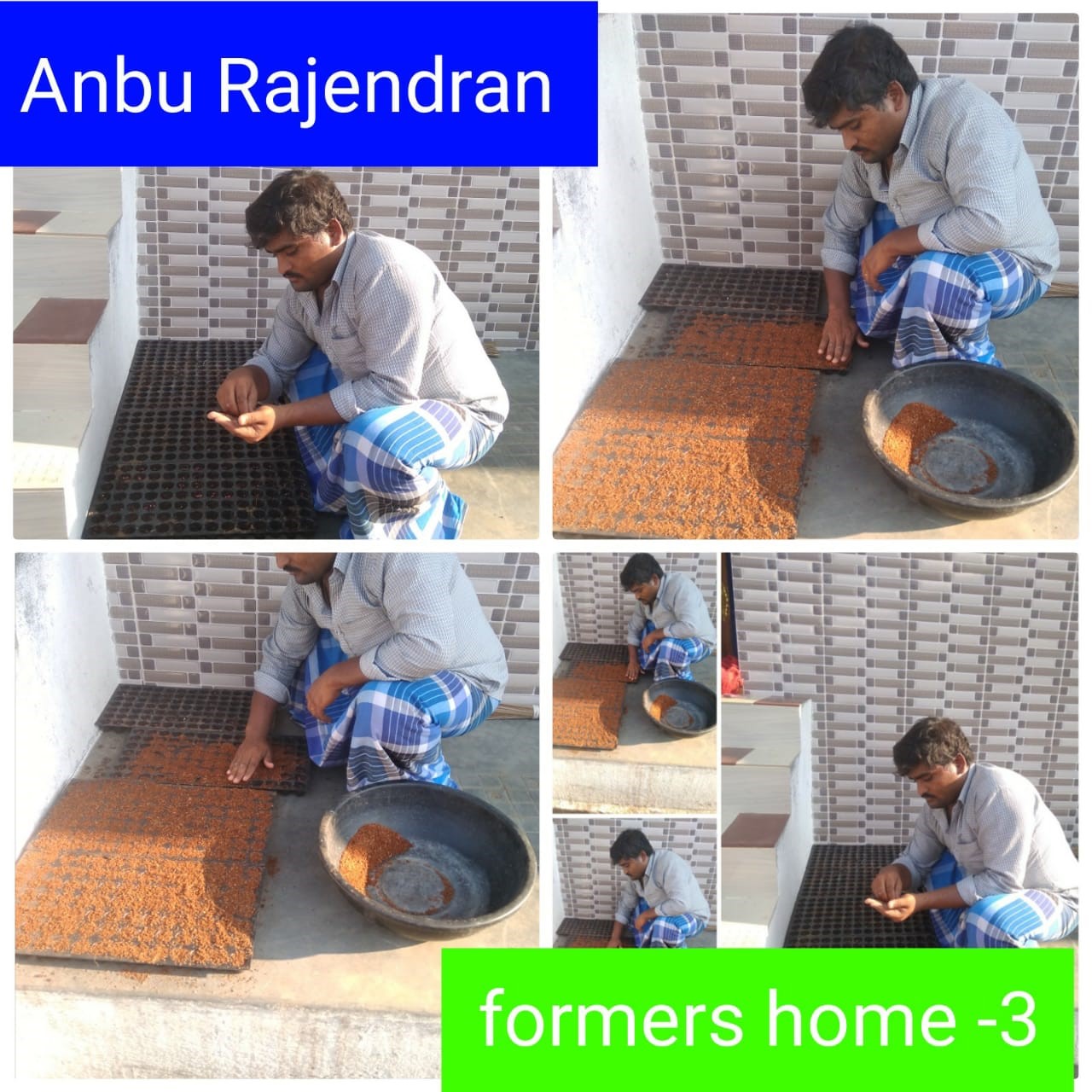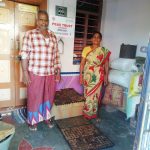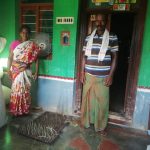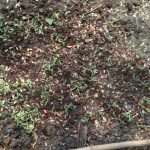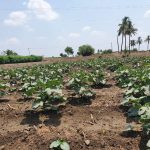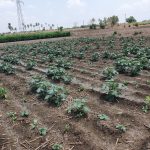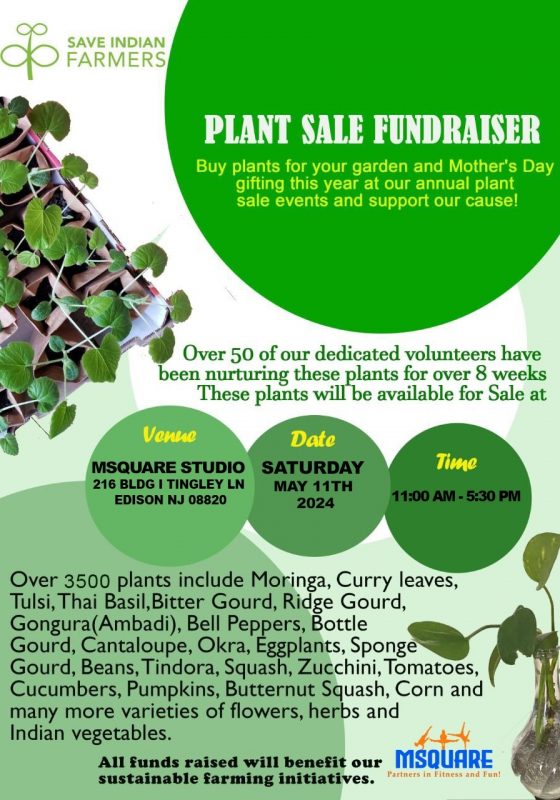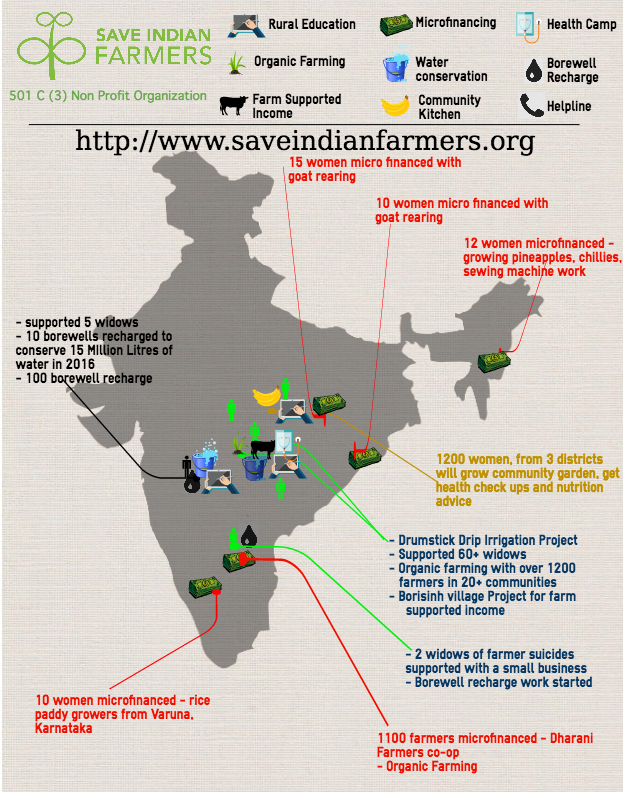Sustainable Horticulture – Trichirapalli, Tamil Nadu(First Year)
Partner: People’s Educational Awareness Service Trust (PEAS Trust)
Save Indian Farmers (SIF) is working with People’s Educational Awareness Service Trust (PEAS Trust) an organization which was formed and registered at Lalgudi in Trichirapalli district by social workers at the grassroots level, who have committed to the people around them, who faced challenges and threats for their life and livelihoods, besides threats to their environment, ecology, and agriculture.
The year-long PEAS Trust project is about implementing sustainable horticulture among marginal poor farmers through intensive training, education in organic horticulture methods and practices with indigenous seeds varieties.
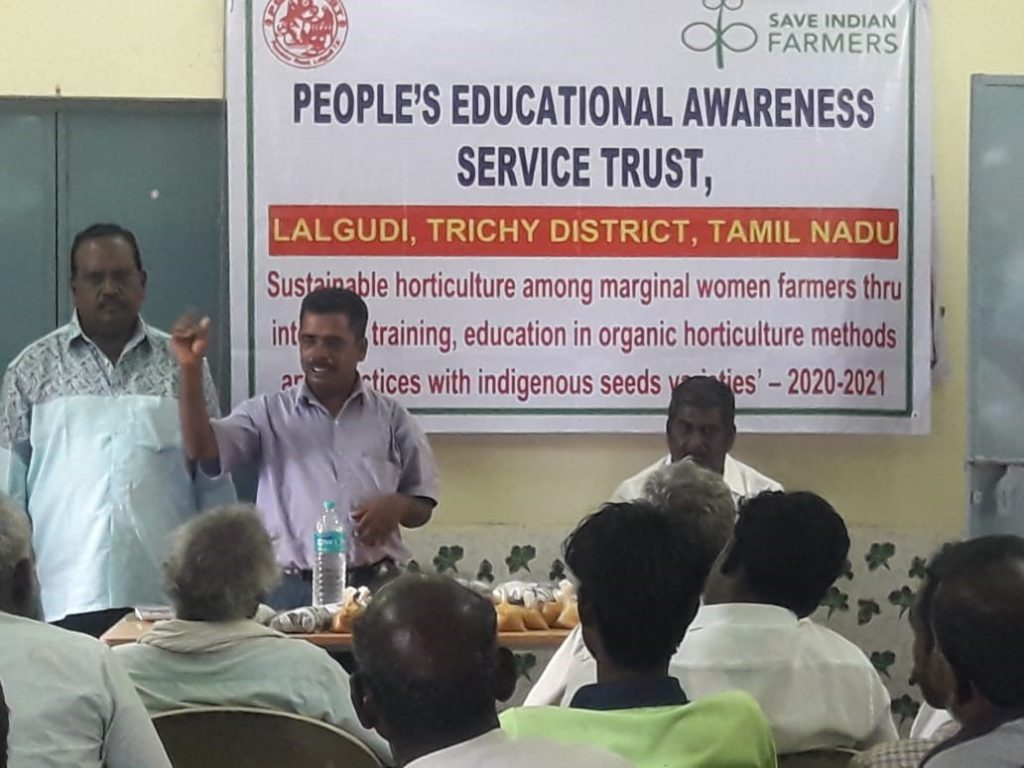
Background information on the project
In Tamil Nadu millions of River sand, Sea Sand, and indigenous trees, herbal and medicinal plants and trees are being exploited and rare species of trees and medicinal plants are facing extinction or no more due to human greedy nature. State Forest cover average is only 17.59 % below that of expected 33.33 % as per National Forest Policy 1988. Abuses of plastics, poly- packs are random, widespread and it becomes part and parcel of people lives. No concern on waste management, policies on solid and liquid wastes are in paper not in practice that hit worse the water resources, the environment and polluted soil, water and environment. People are losing their hopes in agriculture, and careful in preventing their future generations to cultivation rather to other professions by selling their lands and educating their wards.
Farmers use greater amount of chemical inputs, pesticides that contaminated food grains, vegetables and greens, these residues are there in water, air, soil and in human beings due to consumption of chemical internalized food crops, seeds etc. Area of cultivation and number of cultivators are decreasing year by year, while ever increasing prices of outside chemical inputs, hybrid seeds, increased production costs, low support prices forced farmers to quit cultivation. People are losing their hopes in agriculture, and careful in preventing their future generations to cultivation rather to other professions by selling their lands and educating their wards.
Recently in Tamil Nadu, more than 100 farmers commit suicide due to failed crops, failure of monsoon rains, increased debts, and notices from banks to repay the loans and threats from banks etc. The first thing to do is to restore the soil fertility and cultivate only crop that are being successful for generations and ideal to the climatic conditions that prevail in this part of the world and availability of rains, surface water, ground water etc. The Second thing is to bring back the indigenous crops, back to the farmers and being cultivated intensively that will bring dramatic changes in the climate, cropping pattern, health conditions of the people/ consumers and the sustained income to the farmers and landless farmers families that depend upon these farmers who raise crops in the villages. Thirdly, and importantly these indigenous varieties are only suitable to organic farming inputs and practices, and they need not require so much water, moderate and low water is adequate to get good harvests from these crops.
Aims & Objectives of the project
The project aims to educate, train and support the marginal farmers to undertake sustainable horticulture in their small landholding and ensure sustained livelihoods by conserving the eco system around them.
- To identify, select and finalize the list of 30 marginal farmers in 3 villages
- To organize project internalization, formation food producers’ councils, managing the project funds, repayments, training of new women beneficiaries, supporting new women farmers for 2 days
- To orient and offer intensive, follow-up, refreshers, exposures and field farmers schools to 30 women farmers periodically to strengthen their cultivation practices with the help of experts & pioneer farmers
- To provide seeds for cultivation, trays for nursery raising, support costs to raw materials, containers for the production and application of organic farm inputs.
Current project status
PEAS Trust identified 30 beneficiary farmers in 3 villages and Mr. C. Tamilselvan (Consultant for PEAS) did an orientation with all the beneficiaries on March 12 & 13th and baseline on seed distribution was established to begin with. Seeds of tomatoes, lady finger, brinjal, bitter gourds and chills were purchased and distributed to beneficiary farmers.
After the Mid – March Orientation most of the beneficiary farmers (from 3 villages) received the seeds during the 15-day period in a socially distant fashion due to current COVID-19 restrictions. Most of the seeds are of tomatoes, lady finger, brinjal, bitter gourds and chilies.
By April end, many of the farmers who received the seeds put up their nurseries and cultivation were on schedule. 33% farmers were hesitating for nursery raising and wanted to wait till end of hottest summer days, end of May. Usually from May first week to May last week that is May 28th farmers people consider this period as “Agni Nakshatra period” i.e. very hot days of the year, hence people avoid the farming activities and wait for the monsoon.
By June start, 12 farmers who started their nurseries and found successful in maintaining the nursery seedlings also started to plant the seedlings in the farm land. The very first crop output was lady finger. Grown up lady’s finger crop are sown directly in the prepared and tilled lands and hence, you can see good growth of these lady’s finger crop in the field. Brinjal, Tomatoes, Chilies are to be sown in nurseries, from Nurseries, seedlings will be planted.
By July start, on arrival of monsoon, all farmers who received the seeds and organic training (part 1) are on the roll and have actively started the cultivation and seeing initial crop.
PEAS trust has helped 20 beneficiary farmers to get free rice, Rs.1000 money, 1 kg dhal, 1 kg oil and sugar to their families at free of costs for April, May and June. They coordinated this by using state Gov’t funding. No SIF funds were used for this activity.
Inter districts travels are restricted, hence, we found it challenging to organize the next training and demonstrations as PEAS Trust’s trainer Mr. Kamaraj needs to travel from Pudukkottai district. They hope that lock-down 5.0 will have more relaxations.
Budget and funding discussions with PEAS Trust are in progress for phase. This will help them to organize and perform part-2 of the 2-day Training which have also have live demonstrations. Plan is to conduct this training in August through multiple batches due to social distancing limitations.

